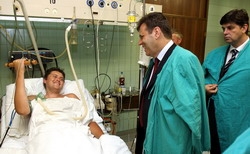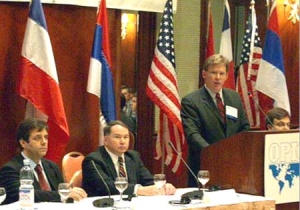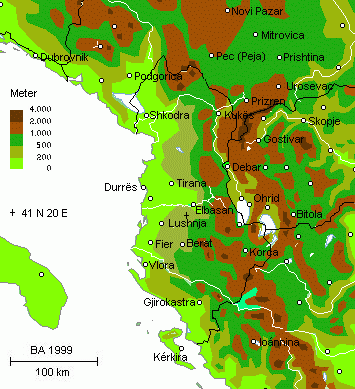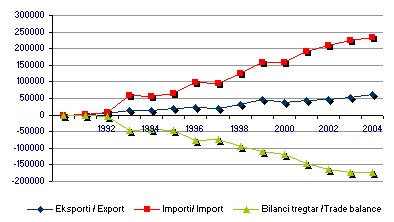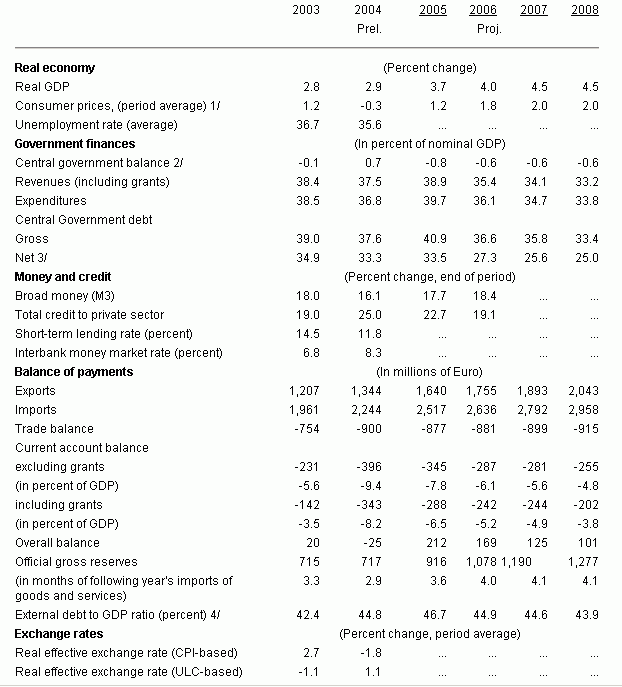Sidste Nyt fra Albanien, Kosóva og Makedonien
Serbien og Montenegro
The Latest News from Albania, Kosóva and Macedonia
# 270 - 02.09.2005
Udgiver: Bjørn Andersen
Publisher: Bjoern Andersen
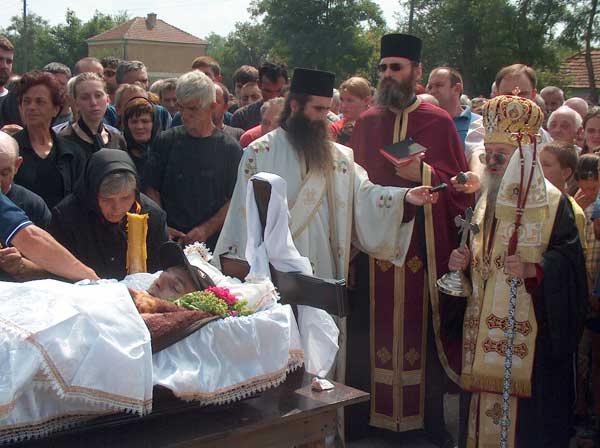
Begravelse i Kosovo. 30.8.2005
»Sidste Nyt om Albanien, Kosóva og Makedonien« hører til et web-site om de Balkan-lande hvor der lever mange Albanere: http://bjoerna.dk/albanerne.htm; her kan du også finde »gamle nyheder«, anmeldelser, links og en Balkan Brevkasse. »Sidste Nyt« sættes på nettet hver torsdag aften / fredag morgen hvor der sendes besked til dem der ønsker det. Bestilling / afbestilling sker ved at sende en e-mail med teksten »Nyheder udbedes« / »Nyheder afmeldes«. Nyheder, materiale, kommentarer og spørgsmål modtages meget gerne, både om småting og større ting. Send en e-mail. Tilsvarende hvis du opdager en fejl. Fejl vil blive rettet hurtigst muligt. »Sidste Nyt« og http://bjoerna.dk/albanerne.htm drives non-profit og uden finansiering »udefra«. Hvis du vil støtte udgivelsen kan du lettest gøre det ved at købe én eller flere af mine bøger. Send gerne en mail hvis der er - små eller store - tekniske problemer. Bemærkninger om EDB-sikkerhed.
The framework of The Latest News from Albania, Kosóva and Macedonia is in Danish - nevertheless, the news are mostly in English. You may send information, comments and questions to: »The Latest News« [please click].

